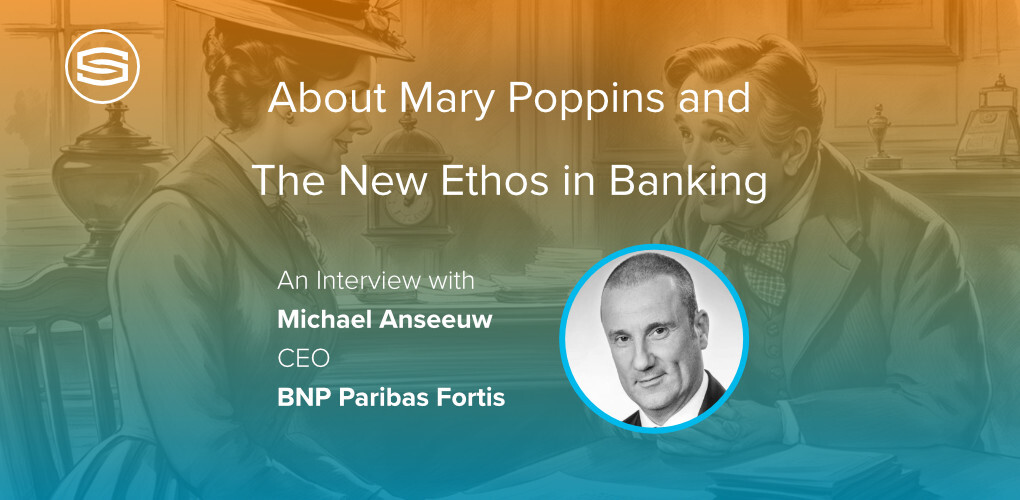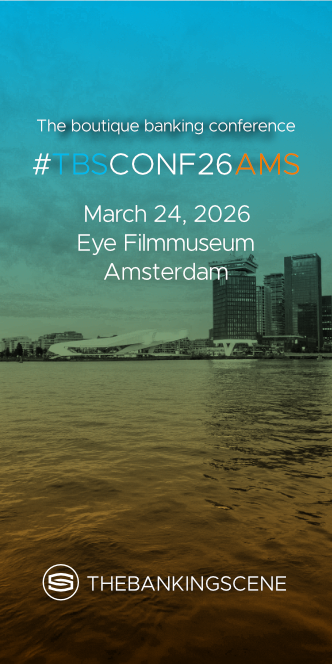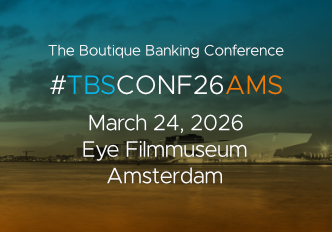
Insights & Opinions
About Mary Poppins and the New Ethos in Banking
Mon, 04 Dec 2023


As part of my ongoing research for my book, I sat down with Michael Anseeuw, CEO & Chairman of the Executive Board, BNP Paribas Fortis, to hear what he thinks about "The New Ethos in Banking".
His last piece of advice to bankers might come as a surprise :).
How would you define ethos in banking? To give you some inspiration: some call it culture, others character. I define it as the colour someone gives to ethical principles.
I would define ethics around two dimensions that need to be in sync to work. One is the internal dimension, which translates into the values and culture of your company. One is the external dimension: how you interact with and position yourself towards your customers and society. These dimensions need to be aligned. A company where they are not in sync will never fly. Then you get in a situation where the values an organisation defines internally are perceived as being fake by the outside world. To maintain your integrity and earn people’s trust, it’s important to have them in sync.
In the financial world, we have a specific challenge: we need to balance our rational and economic reasoning with our role in society. What we do outside should match with how we act inside our organisations, and the other way around. And that’s not always easy. We cannot limit ourselves to a pure economic story. We must also write a societal story. This means that banks must look differently at doing business than other industries.
Take the example of sustainability, which is high on every bank’s strategic agenda. Every bank is working hard on the sustainable transition. This is really about ethics because it means doing good for society. We're working really hard, but I feel like we're not quite getting the message across well enough.
How do you explain that?
I believe we share the same goals with many people in society who really care about sustainability, but it's often not made clear enough why we choose a particular approach to achieve these goals. Take, for example, the question of whether we should finance international oil companies or not.
Those companies are currently in a massive transformation towards net zero. Of course, they keep making massive profits with oil today. If you decide to stop financing them without even considering financing their transition, the societal impact can be devastating for thousands of people and, in some cases, for entire economies, and you have no guarantees that they will proceed with the transition. Instead of abruptly stopping to work with them, we choose to guide them through that transition.
Rationally speaking, and considering all the stakes involved, this approach makes perfect sense. We choose to assist these companies in the transition, acknowledging that complex situations require nuanced responses. Some in society, on the other hand, expect us to stop financing these companies. It shows that even if you agree on the same goals and principles, you might still choose different ways to reach them, especially when you're taking other factors into account as well.
As banks, we opt for a nuanced approach that takes all factors into account. A complex exercise, which makes conveying why we make those choices not easy.
It is indeed an incredibly difficult challenge. I recently attended an event for independent brokers, with sustainability being the main theme. These people, bankers, often sit on the emotional side of the sustainability debate, which shows how tough it is to bring that story in a convincing way. Some people don’t see the priority, others believe we must act faster, while others believe sustainability equals social inequality.
In my book, I will also investigate how different banks have different strategies to live up to their ethical principles. In the context of sustainability, for example, a smaller bank can much more easily make drastic decisions, whereas global institutions will need to apply a much slower, more modest approach, given the impact their decisions could have.
That is what I call a transition strategy versus an exclusion strategy. Each approach has its merits, but neither suits everyone. We see there's often immense pressure from those who advocate for immediate exclusion on those who are navigating a path to sustainability through gradual change.
I don’t believe an exclusion strategy is the right path. If we were to adopt an exclusion strategy, there is no doubt it ends up with tensions between E and S in ESG. Every extreme measure will result in extreme output.
On a sectoral level, I completely agree. However, I do believe that banks can define their own flavour on how to support the green transition.
That is correct, although I believe that banks should also respect each other’s choices. If banks start challenging each other in those choices, it becomes an emotive debate that goes beyond the traditional market play.
I agree, although those tensions may also speed up certain transitions, as we saw in retail and the rise of bio supermarket chains, for example.
Not so sure. I believe a possible acceleration in the green transition within BNP Paribas Fortis is more likely to be driven by what society expects from us, not by what our competitors are doing. Our discussions with NGOs and other stakeholders will impact our path to net zero more than what our peers do or say.
As a market leader involved in close to every sector, I believe that a real impact will come from organisations like ours that decide to stop financing certain activities. These decisions will trigger meaningful discussions going forward, much more than applying the same exclusion strategy you applied for many years without a lot of change, as some other banks do. The responsibility we accept in making these decisions is, in my opinion, far greater.
Another topic I like to discuss is the many initiatives BNP Paribas Fortis set up to facilitate digital inclusion (DigitAll), entrepreneurship (Microstart), and financial inclusion (Nickel). Many of these initiatives are rarely mentioned in the press, although they are clear examples of how BNP Paribas Fortis goes the extra mile for the society in which it is doing business. Why is that?
Digital inclusion is an essential topic in the ethical framework we do business in. It's true that it receives too little attention, given its great importance. But that should only encourage us to seize every opportunity to emphasize the importance of digital inclusion.
I don’t want to cast a stone. We all know how the media works. Good news (or doing good) is often no news at all. If the story isn't being heard enough, then we need to find other ways to tell it.
You didn’t touch upon Nickel yet…
With Nickel, we bring a solution to the market for the unbanked and underbanked. Nickel has a cheaper and lighter model compared to the universal or retail bank model. It doesn’t offer credits, making the business much leaner and easier to manage. There is a segment in the market for whom Nickel is the perfect entry into the financial world.
Here again, we see that these kinds of initiatives are being interpreted and analysed from an economic perspective and less from a societal perspective. People are curious about the number of clients, the profitability etc, and they are less interested in the role of Nickel in the bigger strategy towards more financial inclusion.
By the way, the integration of bpost bank is equally important as the roll-out of Nickel in Belgium in that bigger strategy. Integrating bpost bank and ensuring the partnership with bpost is about extending our distribution network.
BNP Paribas Fortis has more than 4 million retail customers. Over the past few years, we saw an incredible rise of digital banking by having more clients that started using digital channels. Today the rise of digital banking is because of the higher usage of the same customers.
We start to see that some clients simply won’t make the shift to digital banking. If those customers represent, for example, 20%, this means that we have 800.000 customers that need to be taken care of through a physical network one way or another.
We have a societal role to keep serving these people. We must provide a safe, and easy-to-access space for simple transactional services. Rationally speaking, we can no longer afford to keep branches open for getting 50€ cash every week, people who may be looking more for social contact rather than those 50€ sometimes. This is, again, exemplary of the societal role we have.
The bpost network is perfect to serve those bank customers with transactional services.
Nickel is an extension of that for people who have a more difficult time accessing a regular bank.
Looking back at MicroStart and the likes: how do you balance the societal gains with economic profits?
It is an investment. When you start an initiative like MicroStart of DigitAll you can't just aim for profit or even just break-even. Sure, we can hope these initiatives turn out to be financially successful and sustainable, but we've got to be okay if they don't work out that way within a certain period.
I think if you set a strict financial goal on this kind of initiative with a hard date to achieve profitability, you are not committing to the societal gains you hope to achieve. We should be ready for the possibility that the return might take longer than expected and, if that happens, we need to keep supporting these initiatives financially.
We invest money and people in DigitAll because we made the conscious choice that as a bank we have our role to play in promoting digital inclusion.
Let’s have a deeper look into digital transformation now. In my book, I explain that for a solid narrative, there needs to be a balance in the rhetoric triangle. One aspect is ethos, but there is also logos and pathos, pathos referring to an emotional connection with the audience, in the case of a bank, the customer.
I have the impression that in the far past, banks had a relationship with their financial advisor, sometimes for many years or the rest of your life. They trusted that person. They may not have trusted the institution that person represented, but they did trust the person.
Digitalisation created an environment where banks are omnipresent, with sometimes multiple contacts with the client a day and yet the distance between the financial institution and the client never seemed bigger.
In my opinion the challenge of digital transformation today and tomorrow will be to include more empathy in the digital journey of customers.
It is true that relationship banking is due for a revival, also when it comes to digital banking. I am convinced that continuous digital innovations, such as AI, will help us to strengthen personalisation and create more proximity to give that personal relationship between us and our customers a new, closer, dimension.
But I still think that you are idealising the role of the bank agents. Even in the far past, the governance of a bank included career paths for employees, meaning that very few people worked their entire life in one branch with one specific role. That never worked.
Back to the topic of the book, “The New Ethos in Banking- Embracing Values and Ethics for a Meaningful Transformation”, is there one last piece of advice you like to share with the industry to improve the narrative in banking?
A comparison I always make is that a banker is like Mary Poppins. Mary Poppins always effaced herself for the children. It was never about her; it was about the kids she took care of.
Banking is not about ourselves but more about our customers and society at large.
A second lesson from Mary Poppins is that she uses magic to brighten children’s lives. She flies with an umbrella and has an ordinary bag full of surprises; she talks to animals and tidies rooms with the snap of her fingers.
We forget that banking is also a kind of magic. If you want to buy a house but don’t have the money, we’ll help you. You have a phone and a plastic card, and we’ll make sure you can buy with it across the world. If tomorrow, you’re in an accident, you’ll be helped.
A last element is that Mary Poppins always comes with a tongue in cheek and a touch of humour. We bankers became too serious. We can blame ourselves for that, but we are also pushed into the role. We are expected to be very serious.
So let’s bring back that touch of humour.
Let bankers be a bit more Mary Poppins again!


